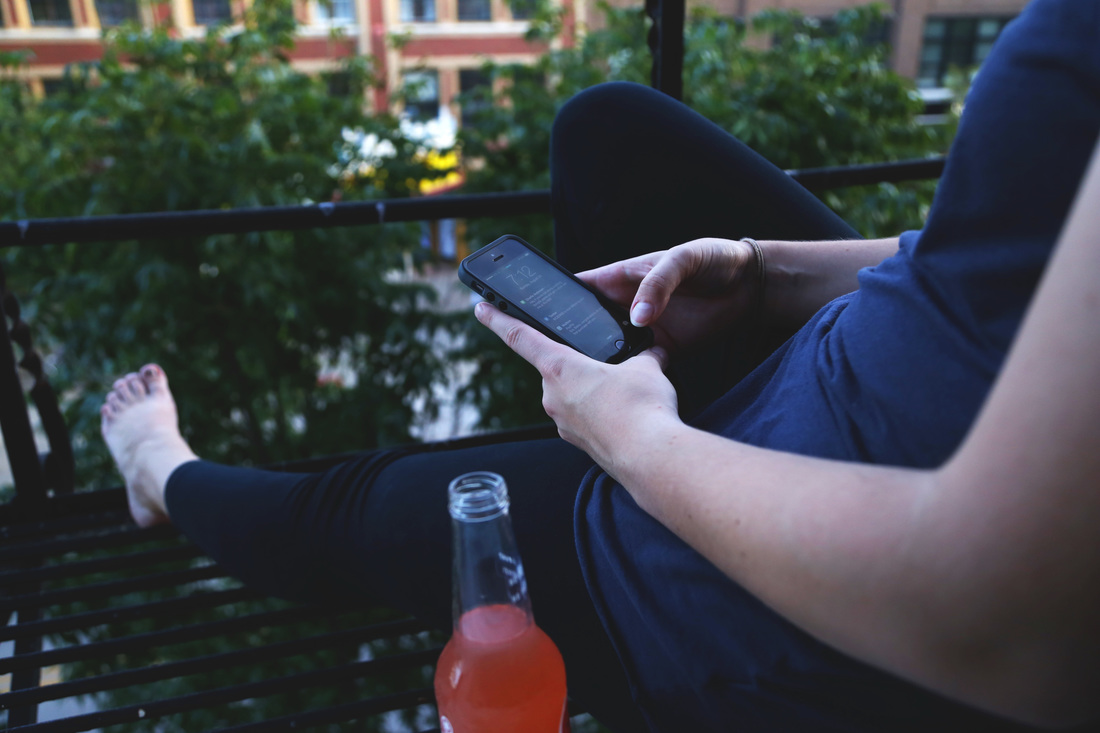|
One of the biggest personal changes for me this year was welcoming our baby daughter into the world in August. I learned a lot about myself and through my wife as she went through the dramatic changes of pregnancy, giving birth, and becoming a parent. I understood my limits, my limiting beliefs, and also the strength of curiosity and compassion throughout the process.
The journey of bringing a child into the world revolutionized my approach to coaching. I have always been dedicated to successfully helping my clients navigate change, from changing careers and relationships, to starting and growing companies, to improving teams, work culture, and individual habits. My work has been focused on incremental and environmental change, based on Lewin's equation that B = f(P, E), meaning one's behavior is a function of the person and his or her environment. Simple to understand, difficult to put into action. In August, I added what I call instantaneous change, or what others sometimes call "transformational change". I wanted to focus on the instant nature of this change. Having researched it for years, I had a theory in mind, but I didn't truly understand it until I went through it. Below I share insights on all three types of changes: incremental, environmental, and instantaneous. Please share thoughts and commentary with me over email. I'd love to hear how your year went and wish you a beautiful year ahead. Incremental ("I may"). What does this change mean? This is typically what most people think of when they think of change. It's the process of building a habit slowly over time. These can be new year's resolutions, such as losing weight, building muscle, or learning a skill. Or they can be much bigger in scope such as starting a company, looking for another job, or moving to a new city. We're not sure we can actually do it, but want to try. If it works, great, if it doesn't, well at least you gave it your best. What makes this change difficult? Anxiety, worry, and ultimately fear. You are taking on something new, and that means your reputation and abilities are on show, either to your family, friends or yourself. The key is to know how you handle anxiety. Do you shy away from a difficult challenge? Are your expectations inflated? Do your assumptions often go unchecked? How do you measure success? How can I handle this change better? To turn a lukewarm choice into a dedicated intention requires a system, which requires upfront planning. For example, it takes 66 days to build a habit, and each day counts. How much time and effort you spend on planning what you'll do over those 66 days will dictate how successful you'll be. Sit down with a notepad and pen or in front of your computer for 2 hours, and thoroughly work through your plan. Break it up into four 30-minute chunks if you have to, but develop a timeline for the 2 months or so, and pare it down by month, week, and day to create the chain of success. If you can see it, you can do it. Environmental ("I must"). What does this change mean? This type of change is prompted by something external, and usually out of your control. These can be major events that dictate the direction of our lives, such as job loss, pregnancy, birth, death, or an election. Or they can be as minor as dropping a mug of coffee by accident or rain when you didn't expect it. What makes this change difficult? Pressure, stress, and uncertainty. You have to do something about it and your fight, flight, freeze, or faint reactions kick in. Some handle it better than others. The key is to know how you handle stress. Are you avoidant? Do you push through? Do you try to understand it? Or do you clam up or cave in? How can I handle this change better? Slow everything down. Zoom in to the details first. These changes often seem too big to tackle. Don't bother with the big, ginormous blob of the unknown. The "what if?" is too scary. Start with just one small, tiny, minuscule step. When something is out of your control, you need something to do to feel like you have some semblance of control. Figure that out, and start there. Instantaneous ("I will"). What does this change mean? Most of us have either never encountered this type of change or don't believe it to be even possible. This is the kind of change that occurs overnight, when you decide you are absolutely going to do or not do something. There's no going back. It doesn't matter how big or small the change is, you know you will go through it sooner or later. It's born of deep-seated self-knowledge. You feel a little like it's happening to you, when in fact you made some kind of agreement with yourself to do something forever more or not to do something anymore. These can be big changes created by small provocations, such as becoming a vegetarian after reading an article on the inhumane treatment of animals or small tweaks caused by big disruptions, such as prioritizing team morale above efficiency after a major project gets defunded. It's almost like you can't believe you were the person you were before once you go through it. What makes this change difficult? Hesitation. The change itself is a matter of when, not if, but your lack of faith, trust, or belief in yourself can sometimes make you hesitate and wait weeks, months, or even year before you get the confidence to act on it. It's only a stalling measure though. This type of change is working in the background anyway. It eats at you because you're in conflict. The person you were before whatever lightbulb of realization dawned on you and the person you are now are different. Think about suddenly remembering that you forgot to lock your front door when you left. Before you remembered, the world was ho-hum, and now you're annoyed, worried, and can't stop thinking about it. You can try to rationalize that it'll be okay until you get back home, but it works at you in the back of your mind. That's the difficulty with this type of realization, it's sudden and unrelenting. How can I handle this change better? Don't hesitate. And if you do, examine the reasons behind your hesitation. It will link back to a story you're telling yourself, about your life, work, and who you are. Ask the "why?" behind the "why?", meaning don't settle for the first answer. Ask yourself "why?" over and over again until you feel relieved. This is important. It's not a superficial, "that feels good" type of satisfaction, it's a "I'm totally spent" type of relief. Conclusion My working hypothesis now is that instantaneous (or tranformational) change encompasses both incremental and environmental change. Meaning, one can instantly transform themselves instead of incrementally going from A to B, or slowly adapting to an environmental change. By deciding once and for all that "I will" change. The root of what's behind that conviction is an ongoing passion of mine, but what I have discovered so far is that belief in its possibility is a starting point. One needs to know that others have gone through it, and so they can too. By definition, instantaneous change cannot be beholden to a process, so it's difficult to break down from a coaching perspective. Still, I've seen it in my clients, colleagues, friends, family, and myself, and I'm motivated to uncover whatever mechanism is behind it. More on that in the future. For now, have a Happy New Year! Though the inspiration to write hasn't been present the last few months, I have been doing a LOT of reading and listening. Here are a few tools from my exploration that I want to share with you. Enjoy!
Podcast: Beautiful Writers Podcast - The interviewers are kooky and fun. They bring on guests I've listened to before, like Seth Godin or Brene Brown, but there's a quality to the Q&A that always leaves me inspired. (ht Caroline Sheahan). Article: The "Adaptable Leader" is the new Holy Grail - Become One, Hire One - I'm a big fan of First Round Review because I can really interact with their articles. It's hard to just read their material without working through the thoughtful questions that change the way you think and approach problems. Book: Reinventing Organizations: A Guide to Creating Organizations Inspired by the Next Stage of Human Consciousness - This book is fascinating, and a must-read for anyone working in the corporate world. Based on the premise that most people are good apples, not bad, the book goes on to show a variety of successful companies that have adopted flexible work environments that truly put employees first. In fact, if you want to categorize your company, check out What Color Is Your Organization? App: Bodyweight Training: You Are Your Own Gym - I used this app on and off over the last year, but earnestly got into it just before the Holidays last year. The "Quick Workouts" are fast, but far from easy, and I've done the 12-minute workout 82 out of the last 90 days. I don't get exhausted, and instead feel stronger and more energized. If you have any questions or comments about any of the resources above, just email me. What Is Coaching Anyway?
Coaching sessions are about an hour or more on the phone or in person and involve extensive dialogue. The purpose is not to offer therapy, relaxation or coping mechanisms but rather to find a pathway that works specifically for you, so you can apply it every day to your life. Language is important because a word or phrase that triggers understanding in one person may confuse someone else. There is no script, just a mutual connection. Fit is important. One of my favorite quotes that echoes this philosophy is: "The teacher and the taught create the teaching." As a coach, my goal is to try another tack when there is confusion and to continue deepening the exploration when there is understanding. Being A Client Most of my clients have a strong desire to learn and grow. They want to be better versions of themselves. The focus is often on work: being a better leader, managing time, communicating effectively. We also cover other areas such as work/life balance, having a stronger sense of purpose and meaning, being a better listener, partner, and even parent. There's a notable commitment to self-understanding. This is ultimately a path to self-awareness. How can it be any other way? Only you know the path towards the goals you identified. I serve as a brief companion on that long journey of self-reflection. A Peek Into A Coaching Session Below is a sample of how a session could go: Client: can you give me ways to be calm and focused when I'm at work? Coach: tell me about a time when you were completely relaxed and comfortable just where you were. Client: it was at my best friend's house when we were talking about our kids. Coach: what exactly was comfortable about it? Client: there was a natural ease to the conversation where I didn't have to struggle to be myself. I wasn't wearing a mask, the way I feel like I do at work. Coach: why a mask? Do you not feel like yourself at work? Client: in a way. I feel out of place, like I have to try to be someone else. Coach: where does that thought that you have to be someone else come from? Client: doubt, I guess. Because I feel like I don't know what to do to take care of the situation. Coach: why don't you feel doubt when you're at your friend's house? Client: because I'm completely accepted in that environment. Coach: Okay. So what can you do to create acceptance of yourself at work? Client: I suppose I can express myself truly. Coach: just as you are? Client: yeah I suppose. (Pause) Client: and then I'll be at ease because I'm myself. Coach: now let's talk about ways you can remind yourself of that when you're at work... The conversation continues until we figure out triggers that work in different environments, such as at work, home, or in stressful situations. We work together to identify habits that enable self-awareness and situational awareness. This is only 10 minutes out of a 60 to 90 minute conversation, where we discover tactics, techniques, and methods that make sense for the client. Figuring out a path specific to them holds greater value because in fact they themselves discovered it. An Opportunity To Reflect We rarely give ourselves the opportunity to have these conversations about self-growth, self-improvement and self-reflection. We might have done this when we were younger, perhaps in college, but our busy lives don't allow us this luxury often, if ever. That is the purpose of coaching. Typically, my clients start with a commitment of 3 months so they can experiment and see results, but clients have stayed on for years because they see continual growth. Sometimes, my clients take breaks for 3-6 months. I hear from them if and when their path has wavered or when they are looking to grow along a different path, or perhaps deepen their knowledge of themselves. Everyone needs a place for reflection, whether it's your daily journal, your religious institution, your community or a good friend you talk to regularly. Reflection makes you better, not tomorrow but today. Being A Coach I have had various roles in corporations - executive, consultant, employee, entrepreneur - and I continue to work in healthcare to improve the system of care for patients. I live the life my clients live, which tunes me into the daily struggles we all face at work or otherwise. Coaching is more than a role for me though. I revel in it. I cherish and respect this process. It's what I think about naturally. It's who I am, and what moves me. I get energy from every phone call and meeting. Hard questions need attention and time, which is the point of coaching. We get that time to step back and evaluate, and build strategically towards the future. What comes out of it may completely change how you do things, or just tweak it a little bit, depending on what's right for you. Regardless, you learn something about yourself through the process. Gaining in-sight that is invaluable to how you see and interact with the world. -- What would you work on if you had a coach? If any of this appeals to you, click here to learn more about my work, or simply email me. I always start with a free 30-minute session to see if there's a fit. A quick plug: Starting next Tuesday, I'll be teaching Developing Mindful Habits, a 4-week online course that helps you have less stress and worry and be more productive and creative at work.
Take a look and see if it's right for you, and please share it with others! -- Take it easy. There will always be another hard project, hard job, difficult coworker, tough situation or some other thing you'll have to deal with. These difficult things will make you difficult if you let them. Instead, approach them easily, with grace. Lightly work through them, not necessarily protecting yourself, but rather being part of it to the degree you don't hurt yourself. That means not giving yourself a hard time too. Dealing with hard things easily lets you know when "enough" approaches. Going past "enough" is not bad in and of itself, but it's something many of us do unconsciously. Choosing to do it puts you back in the driver seat. You become easy-going because you accomplish things easily. Don't cut corners though. This isn't about half-assed work or not trying hard. That's just another form of protecting yourself and will make things even harder as time goes on. You're only doing less now to do more later. Start simply by looking at how you walk, talk, and sit. How much effort do you put in these activities you do all the time?
A good question to ask yourself is: Are you walking, talking or sitting with your mind? What would it be like if it were just your body? Be light with yourself first and soon you'll be lighter with others and your work too. Smile and others will smile too. And things may just be a little easier for everyone... -- What do you do to take it easy while working hard? Are you aware when you've gone past whatever "enough" means for you? Share your thoughts with me over email. DIY Advice
Around the Holidays, there's a lot of advice-giving that happens, especially from family members and friends you haven't seen for a while. Much of the advice is anecdotal but it comes from that good intention of helping another person out. Some advice can be step-by-step and clear, but most advice lacks empathy. It doesn't necessarily consider you, it considers only the person giving it. There are a lot of assumptions in it that their reality is similar to yours, when that could be completely off the mark. The advice I've found most useful has been what helped me figure it out for myself. It was self-referential, in that I already had the answer and just needed a few words and phrases from someone else to uncover it. There was a connectedness to it in that the person took the time to consider it from my vantage point. You + Me = We The idea of "co-emergence" is that you empathically place yourself in another's perspective while they do the same so that a solution is created, or rather co-created. From a Western perspective, you "walk a mile in their shoes" before advising them. From an Eastern perspective, one of my favorite sayings is, "The teacher and the taught create the teaching." When I look back on successful projects, decisions, and events, I can see the truth in both sayings. And when things didn't work out, I recall the situation being one-sided, not considering everyone involved. We often act from the idea that we are lone agents in the world. The very definition of "co-emergence" proves this impossible. Of course there's you and me, and our self-interest. But there is also the "we", and when two people act from that perspective, things seem to work out, and much more smoothly. A Mutual Handshake It's like going to a networking event and putting your hand out there for a handshake. When the other person does the same at the same time, the synchrony is clear and conversation flows easily. If you held back your hand until someone else put their hand out first or if you put your hand out first and the other person was slow to respond, things would be a little off. You may not pay it much mind, but it might feel awkward at the outset. In the same manner, if you're receiving advice without empathy, how can you be empathetic to turn the tide from personal annoyance to mutual benefit? And if you're the one giving advice, how can you imbue empathy into the conversation? -- Think of a time when you were getting or giving advice. Was the advice asked for or warranted? What role did empathy play in how the advice was received or given? Share your thoughts with me over email. A Simple Habit To Stay Level-Headed
Take 5 deep breaths during transitions in your day. What are transitions? Every time you go from home to work, work to home, lunch to work, work to lunch, meeting to office, meeting to meeting, and other moments when you shift from one mindset to another represents a transition. In fact, an even simpler way to define transitions is when you're "on the go" or when you feel like you are. Our go-go-go mentality rarely lets our attentive mind take a break. Rather, it's wired to look for even more things to pay attention to, like checking email, social media, news etc. And most of us operate on the belief that we're more productive because we complete tasks on the go. That may be true, but how do you feel at the end of the day? How energized or exhausted are you? How much caffeine do you need to maintain that level of alertness? And how much of a crash do you feel later? Mindfulness is about balanced productivity Taking those 5 deep breaths during transitions is a simple start.
Mindfulness, especially when it's used in the work setting, can have phenomenal benefits:
An Online Course on Developing Mindful Habits I'm teaching a 4-week online course in mid-January on Developing Mindful Habits. You'll learn mindful habits that will actually keep you calm, cool, and collected. The early bird discount ends tomorrow so take a look today. What's Behind Saying "No"?
Recently, people have been talking about how to say "no" to potential connections like coffee invites or phone intros so you can stay focused on what you're doing. Saying "no" to possibilities - for work, collaboration, friendship, etc. - may limit our growth, but our busy calendars limit our time, leaving little choice but to filter options. "No" may be a symptom of a greater underlying problem - a lack of boundaries. Defining What's "Enough" We all need boundaries, in terms of defining what is "enough" for us. This goes beyond meetings to our work too. Going past the point of "enough" can be personally detrimental. Do you know when you have worked enough and need to stop? Do you know when your calendar is getting too filled and you need to stop adding to it? Knowing when to stop gives you the opportunity for a break, for alone time or an outing with someone. Now, saying "no" is less a reaction and more a conscious response. On the other hand, when you don't define what's enough for you, the prefix, "over", gets used a lot. You feel:
The list goes on. If you don't know your boundary, it gets defined for you, and you only learn of it after the fact. Then, you have to work a little harder to fix it. How To Set Boundaries Defining boundaries starts with saying "yes" to yourself. Look at your calendar and note how many items represent what you really want to do versus what you're doing for others (employer, business partner, colleague, etc.). Take an upcoming week and for each day, count the items that are for "yourself" and items that are for "others". On those days when items for "others" are greater than items for "yourself", either remove one of the "others" items or add a "yourself" item. This simple action allows you to define personal balance very specifically, prioritizing your interests and how you want to most want to spend your time. It's your time after all, even if you're renting it to an employer or client. How are you going to enjoy it? Balance = Energy Now, if someone invites you for a coffee or phone intro, instead of saying "no" outright because you're busy, you can make an intentional decision based on how you want to balance your day or week. You'll feel more energized either way, because you're planning by saying "yes" to the things you care about. Sometimes that's work you want to focus on and other times it's new connections you hope to pursue. Acting from a place of personal balance is additive, because regret, guilt, or "should" don't play into your decision. Saying "no" or "yes" is no longer an opportunity cost, it's just an opportunity. -- What boundaries have you set for yourself? Have you defined "enough" for your work, meetings, personal time? Share your thoughts with me over email. (These emails only come to me and are never shared with others. In fact, they often help me come up with ideas for future posts I can share with a broader audience.) Does Leadership = Power?
There is a strong, even evolutionary association between leadership and power. It's coded in us to see those that take charge as those that are somehow more than us, better than us. We applaud the Steve Jobs' and Elon Musks of the world, emulating their habits, hoping one day we can be like them. Startup founders perhaps suffer more from the illusion that leadership = power than most people, especially because of the media hype around successful rags to riches founders. When you translate this ego-based viewpoint to the social good space though, it feels off, and not aligned with the ethos of what social entrepreneurship represents. This "granted power" can seem uplifting, but it is problematic in its very nature. Problem #1: Granted power can lead to an authority complex A title by itself will grant you authority over others. Regardless of who you are or what your credentials indicate, if you walk in as a CXO, people will listen that much more closely to what you have to say. This is dangerous, because like anybody else, you can be wrong. Solution: Use the "obligation to dissent" to allow colleagues to speak up To correct for this, great leaders allow for the "obligation to dissent". This allows others the leeway to disagree with you regardless of your authority. Those "under" you no longer feel that way, rather they have right as equal as the leader to say "no" to something. Problem #2: Granted power can lead to imposter syndrome At times, you will feel like you don't know what you're doing, maybe even most of the time if you're new to a leadership role. But people will look to you to make decisions. The truth is you can't know what to do all the time. Solution: Hire smart, subject matter experts To correct for this, you appoint people smarter than you in the subject areas you're unsure of and lean on them on a regular basis. You are no more an imposter than anyone else who was or will be granted that position, but you can't allow the pressure to be "right" to lead you into making poor decisions. The Emergence of Self-Managing Organizations Knowing these problems are inherent in leadership, some organizations are even eliminating leadership roles entirely. Instead, these new type of organizations are relying on teams themselves, not those that lead them. The idea of self-managing organizations isn't as radical as it used to be and companies like Zappos, Medium, and Morning Star are well on their way of achieving great successes without leadership. Self-managing organizations is a topic worth an article of its own. Till then, be mindful of the relationship between leadership and power. Who are leaders you respect, and why? Do you believe leadership and power go hand-in-hand? Share your thoughts with me over email. (These emails only come to me and are never shared with others. In fact, I often write future posts based on some of the questions and ideas from these emails.) Free 30-minute Phone Coaching
I am offering FREE coaching sessions next week from Monday, October 26th to Friday, October 30th. This is completely open-ended and you can choose to discuss any topic that you like. Email me with 3 dates/times that work for you. Why Is This Free? Self-awareness, yours and mine, is the purpose of these conversations. I coach, write, and speak a lot about mindfulness and psychology, and typically it's to an audience that is already somewhat tuned into the message. I love that, but also want to reach others and learn what they're struggling with and if mindfulness could help. There are many who don't understand what mindfulness even is, or think of it just as new age meditation. And there are others who are curious whether it would apply to their daily work and personal life, but don't know how to do it. This offers an opportunity to co-create an outcome that is unknown, but the gain is mutual. You're offering me your time, and I value that. What Can We Discuss? Here are a few suggestions on topics I've discussed with others in the past:
These are just a few examples, but you can be as specific as you like. Schedule A Time Here is how to sign up: Email me three dates and times that fall during the next week, from Monday, October 26th to Friday, October 30th. This offer will only be available during this time period. Forward this to a friend or colleague who you think might benefit! How Have Others Benefited? "Akshay provided simple and clear methods I can easily incorporate into my life to relieve stress and increase productivity." "I am confident that I am NOW a better person and well on my way towards where I want to be in my life. Akshay's coaching methods have been helpful professionally and personally in tandem." "Akshay is adept at explaining the meaning behind some esoteric terms and conveying how they relate to everyday life." Why Start Now?
January is one of the worst times of year to start a resolution. After the Holidays, you're tired, money is tight, and work beckons. Plus it's dark and cold. Basically, we set resolutions because everyone else does, and so our inner drive isn't engaged either. Fall (and Spring), when the seasons are changing, is one of the best times. You're in "get it done" mode after the summer, in a rhythm at work, and have enough time to plan and figure out what you want to change and why. The desire comes from within. Plus, the majority of us break our resolutions about 30-45 days in. If you start now, you'll be catching the actual New Year's vibe and get a second wind. You also get the benefit of practice, so you learn what works in your routine, when you falter, what it feels like to stick to it, and in general how much you want it. You're prepared, and when January comes around, you get a second crack at it. Free Half-Hour Phone Coaching All it takes is just to start. A saying I hear often is "the best way to get something done is to begin." Most of us do this solo, and that works for some, but others want a guide, a motivator, a coach that works with them to build good habits and avoid pitfalls. To that end, I am offering FREE coaching sessions during the week of Monday, October 26th to Friday, October 30th. This is completely open-ended. You can choose to discuss any topic that you like. Email me with 3 dates/times that work for you. Here are a few suggestions to get you started:
These are just a few examples, but you can be as specific as you like. I mainly train my clients using mindfulness to be more present and self-aware, but also apply principles from psychology, personal development, and neuroscience. Schedule a Time Here is how to sign up: Email me three dates and times that fall during Monday, October 26th to Friday, October 30th. This offer will only be available during this time period. Forward this to a friend or colleague who you think might benefit! What Others are Saying "Akshay provided simple and clear methods I can easily incorporate into my life to relieve stress and increase productivity." "I am confident that I am NOW a better person and well on my way towards where I want to be in my life. Akshay's coaching methods have been helpful professionally and personally in tandem." "Akshay is adept at explaining the meaning behind some esoteric terms and conveying how they relate to everyday life." |
Coaching Consulting
|











 RSS Feed
RSS Feed